DIVERSE FEMALE VOICES SPEAK ABOUT THE IMPORTANCE OF GENDER EQUALITY AND HAVING A BALANCE IN SOCIETY
by ASJAD NAZIR
The theme for this year’s International Women’s Day is Balance For Better, which is a drive to build a gender-balanced world that helps to create an exciting future for everyone.
There will be activities, campaigns and debates happening throughout the world connected to equality.
To celebrate the occasion, Eastern Eye spoke to women from different backgrounds, from actresses to a young girl, about their views on gender equality and how to create a more balanced society.
Naseeba Sacranie (Creative director): It is 2019 and sadly inequality and gender discrimination are still rife globally. Education and awareness are vital if we want a positive change to happen. As a mother of an eight-year-old boy, I strongly believe change starts at home. Parents should teach their sons and daughters at a young age about equality, so it is naturally ingrained in their upbringing. A lot of work needs to be done particularly in south Asian and middle eastern cultures. Powerful mediums like Bollywood should use their platform to educate, create awareness and set an example, but sadly they don’t do enough.
Debina Bonnerjee (Actress): Gender equality is primarily about treating every individual as a human irrespective of one’s gender. More important than gender is that one’s emotions are equally valuable as the other’s. One’s right is as valuable as the other’s. No one should claim to be more powerful than the other. I believe we should start empathising with others. There are many oppressed women and transgender people. Women from a privileged background should help these people get their rights. Since the patriarchy placed men in a powerful position, they should understand that every individual has equal power and therefore, support and fight for the exploited ones.
Dia Mirza (Actress & producer): Gender equality is essential to achieve sustainable development goals. The world needs equal representation of women in all spheres of life. A balance is possible only when there is an equal representation. As producers, we ensure that there is a balance of gender at the workplace. Ensuring we have a strong representation of women as crew creates a healthier work environment.
Priya Mulji (Blogger, columnist & marketer): A woman can change the world with her thoughts, actions and kindness, but more needs to be done to respect women in 2019. One of the biggest things that needs to change is the abuse women encounter on a daily basis. This is in the form of sexual harassment at the workplace, rape, domestic violence or even threatening behaviour online. All these need to change. The only way we can change this is by educating young women at a grassroots level to not accept abuse of any form. Men need to be educated from a young age that negative behaviour towards women will never be okay.
Jasmin Bhasin (Actress): I believe men and women are equal. I am a woman and have worked very hard to reach where I am. I believe I can give competition to any man. If the mentality of men and women being not equal is changed then this world will become a better place for everyone, especially women. Parents should make their daughters believe that men and women are equal in all respects. Bringing equality of opportunity and equal respect to all, irrespective of gender, will bring about a positive change. I want to see women giving tough competition to men. It is time for people to change old school thoughts and let the air of evolution flow in through their windows. We can all change the world by first changing the mindset at home.
Asha Mistry-Magin (Student, aged 15): Gender equality is very important. For society to progress there has to be an equal representation of voices. How is societal progression possible if conversations are unbalanced and start on an unequal footing? I think equal opportunities are getting better; for example, my school offers the same opportunities for boys and girls. But, recently, I attended an A level physics taster session where I was the only female, so perhaps more could be done to encourage girls in science. At home, I feel equal to my brother, but I have noticed cultural expectations for women and men are not always equal, such as when men are eating before women.
BananaSharma (Spoken word poet & writer): Gender equality is only the beginning. It is a given, the baseline, the foundation. There is much work to be done to make humanity’s footprint more sustainable, useful and aligned with the natural order. For these changes to take place, equal access must be assumed. It is a step, which can’t be skipped; however, we must not mistake ‘equal’ as being synonymous with ‘identical’. There is duality in all things and space for the different offerings of the masculine and the feminine. Becoming aware of our shakti (power) is integral to the healing of humanity, and this will require us to think collectively with our hearts, get real good at our art and understand that solidarity is just the start.
Aditi Rao Hydari (Actress): Gender inequality is a reality and it’s so ingrained within us that we don’t even realise how we create differences based on gender every day. Opportunities, aspirations, rights and the needs of men and women are not favoured equally. That can only change with exposure to a better and wholesome education, not just literacy, but education. And most important, the education of the girl child. A girl must be educated and independent. So when she goes to work and raises a family, hopefully, she will make sure discrimination is not perpetrated. Change starts from education within the home, as you learn by example.
Ameera Ameerullah (CEO of Canada Mortgage & Financial Group): Women face an uphill battle when it comes to the workforce, political representation, education, and experiences of violence, to name a few. Much of the objection to change in gender roles is really about sexes and power, not just about gender. The so-called ‘glass ceiling’ must be erased from social consciousness. As women, we must stand up for ourselves, stand up for each other and stand up together. Gender equality is not only a fundamental human right, but it is also a necessary foundation for a peaceful and sustainable world. We must globally understand parity through one consciousness, one language to sustain change and become agents of change.
Suki Dusanj-Lenz (Country Head, Fashion Revolution India & Executive Director, Swiss-Indian Chamber of Commerce): Gender equality is not just a feminist issue. It’s a humanist issue. Let’s dissect the conversation deeper and discuss human equality. Race, gender, sex, beliefs and upbringing should not be the contributing factors as to how you are treated in the world. A progressive world is when equality starts at home and continues in the wider community, then into the workplace. Globally, women make 77 cents for every dollar men earn. According to UN Women, it will take 70 years to close that gap. We can fast track that by steering the ship harder and faster for a more gender equal world. As industry leaders, we have to use our power and influence to be a catalyst for true lasting change.
Nimrat Kaur (Actress): The basic rights any girl should have on this planet are that she deserves to be treated equally, given equal opportunities and have a fair and safe environment. We struggle with these basic elements we should have in our society every single day. It is very heartbreaking to see how much of a treacherous environment it can be to live in for a girl. We are doing ourselves a disservice if we can’t provide basic social safety to all women and girls. It is up to each one of us to make a positive change, including the way women bring up their sons; the way women empower other women; men empowering other women. All of us need to take equal responsibility.
Ashi Singh (Actress): This is a vast topic that can’t be expressed in a few lines. Yes, women and men should be treated equally. But today, women are proving themselves in so many fields and showing they are no less than men. I am proud of all the women and girls rising up around the world, including in my country, India. I believe gender equality can happen and am hopeful that it will. I also support those men who face challenges. As someone said, ‘our generation is so busy trying to prove women can do what men can and by doing that women are losing their uniqueness. Women weren’t created to do everything a man can. They were created to do everything a man can’t do.’
Ambarina Hassan (Beauty expert & brand consultant): Gender equality has always been an issue. Decades ago, gender equality was a male versus female affair, but today, it’s more complicated. Male, female, lesbian, gay, transgender, transexual, transvestite and so many others; the terms and the options may have changed, but the point remains, as it ever was. Why should someone’s gender, either by birth or by choice, matter so much to us? Surely, we should judge a person by their merits and kindness. It should not be tied up with their ‘privates’, which by their very nature and the word itself is private. Let’s treat all people as equal, irrespective of their sex or sexual persuasion, and make the world a better place for our children and future generations.
Armeena Rana Khan (Actress & humanitarian): Imagine an army or a football team where half the members just stand still. It doesn’t make sense. Why are our mothers, daughters and sisters beaten, underpaid, sexually assaulted and denied opportunities? We should say, enough. It’s 2019, let’s get serious and make some choices. On a personal level, teach your boys they are not the protectors of women. Then eliminate the differences in raising your sons and daughters. On a societal level, establish a parallel and equal female prime minister. Next, make sexual and domestic violence against women a statutory crime against the state. Then sit back and watch our human, economic and creative potential go into overdrive.
Suman Bajaj (Fashion designer & business entrepreneur): When one considers that 60 million people around the world are garment workers, and 80 per cent of that number is made up of young women, one might not expect gender issues. Think again. In the process of producing the very same garment that empowered women adorn, these female workers worry about getting equal pay, penalised for having a family that also needs them or are sexually and physically harassed. It may be considered that we’ve made progress, but we still have a long way to go. I urge women to hold each other and guide one another. As part of the matriarchy, let’s expect less from others and more from each other. We’ve begun to raise daughters more like sons, but now let’s have the courage to raise our sons more like our daughters.
Bhavini Purohit (Actress & YouTuber): A world of equality can only be achieved with the active participation of all genders. In a patriarchal setup, men are not encouraged enough to think about women’s rights. But an evolving society and progressive mindset means an increasing number of men are working towards advancing gender equality. But there’s still a long way to go. It will be achieved when both genders enjoy the same rights and opportunities across all sectors of society, and when their different behaviour, aspirations and needs are equally valued. Initiatives are taking place to make this happen, including a more inclusive work culture and women standing up to issues like harassment and gender bias at the workplace. Slowly but steadily, we can hope for a world free of any disparity if we all work together.
Eisha Acton (TV presenter): Striving for equality starts within. Knowing your true worth is the first step towards breaking down stigmas that suggest you are inadequate. The history of women’s rights (or lack of) should be a compulsory subject in schools, universally. An Australian university introduced such a module, following the brutal murder of a female student. The university bravely created a module whereby every student had to address how to respect women and keep them safe in modern day life. I think forward-thinking movements such as this are essential for our society - in order to properly learn how difficult it is to live as a woman and how simple changes in daily notions of respect can shift the current power struggle and identify women as equal.
Rameet Sandhu (Singer & songwriter): I find gender equality very important and being a female in the music industry I feel like it’s still unbalanced. Despite several discussions and topics regarding female empowerment, I don’t see much change. In the UK, I feel there’s only a handful of female singers compared to the wide range of British male artists. I feel the people who preach female empowerment and how they should support the females, including in the industry, should actually do it rather than saying it and then we will see the change.
Baroness Manzila Pola Uddin (Life peer & activist): Inequalities are embedded in all aspects of our lives. Britain prides itself in its global advocacy for equality, yet it is 100 years since women achieved suffrage. Inequality in our political, academic and business organisations remains endemic and progress is painfully slow. At the current rate, it is likely to take another 200 years before there is equality of men and women in our governing institutions. It is my belief that mandating political parties to select equal numbers of men and women within all constituencies for both local government and parliamentary constituencies would significantly impact social, economic and political inequalities. Women’s equal participation and leadership would inevitably influence and cause social changes. This will improve the conditions, which create barriers preventing their full participation in all aspects of economic, civic and political life.
Harshdeep Kaur (Singer): As a child, we were often asked who do we love more - mother or father. And it was the most difficult question to answer. I wish our society can think like that child while making a choice between daughters and sons. Gender equality is a term created by society and now it’s time to change the term to gender unity. This positive change can occur only if there’s a change in the mindset.
Surbhi Chandna (Actress): Instead of debating gender equality, let us all collectively take steps to make it a reality so that it is no longer an issue. Real change will happen with education, which includes giving young girls the same educational opportunities as boys and getting society to realise that making everyone stronger empowers us all. It all starts with parents educating and empowering their children. My parents brought up two daughters and made us believe we can achieve anything. I admire all the young girls and women who have to fight a little bit harder every day, and proud of all the women who have made a mark in every male-dominated field.




 An explosive new play that fuses biting satire, history and heartfelt storytellingPleasance
An explosive new play that fuses biting satire, history and heartfelt storytellingPleasance








 Lunchbox is a powerful one-woman show that tackles themes of identity, race, bullying and belongingInstagram/ lubnakerr
Lunchbox is a powerful one-woman show that tackles themes of identity, race, bullying and belongingInstagram/ lubnakerr She says, ''do not assume you know what is going on in people’s lives behind closed doors''Instagram/ lubnakerr
She says, ''do not assume you know what is going on in people’s lives behind closed doors''Instagram/ lubnakerr
 He says "immigrants are the lifeblood of this country"Instagram/ itsmetawseef
He says "immigrants are the lifeblood of this country"Instagram/ itsmetawseef This book is, in a way, a love letter to how they raised meInstagram/ itsmetawseef
This book is, in a way, a love letter to how they raised meInstagram/ itsmetawseef
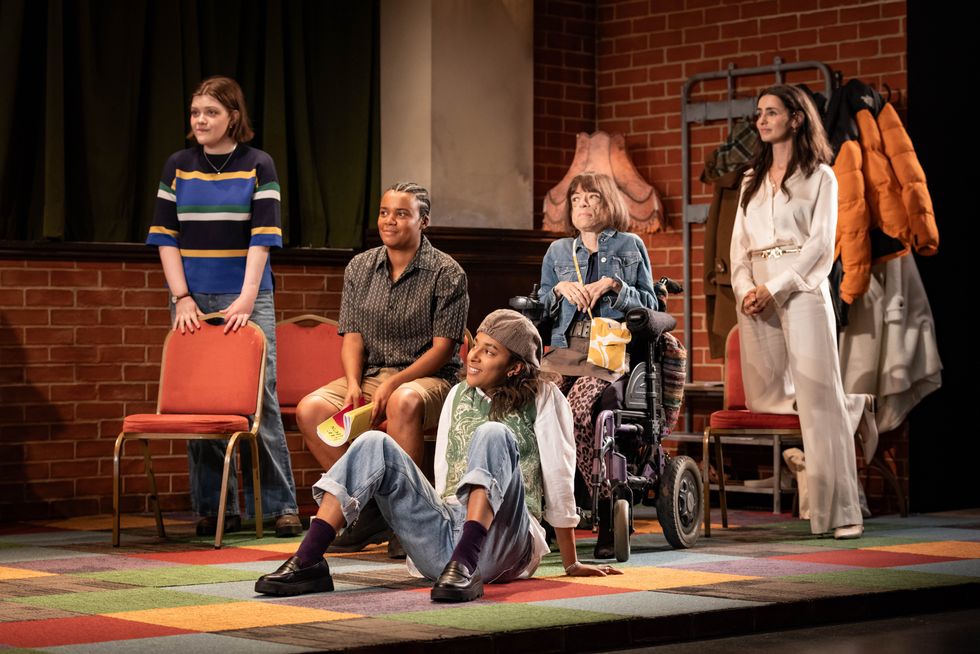 The crew of The Ministry of Lesbian Affairs
The crew of The Ministry of Lesbian Affairs
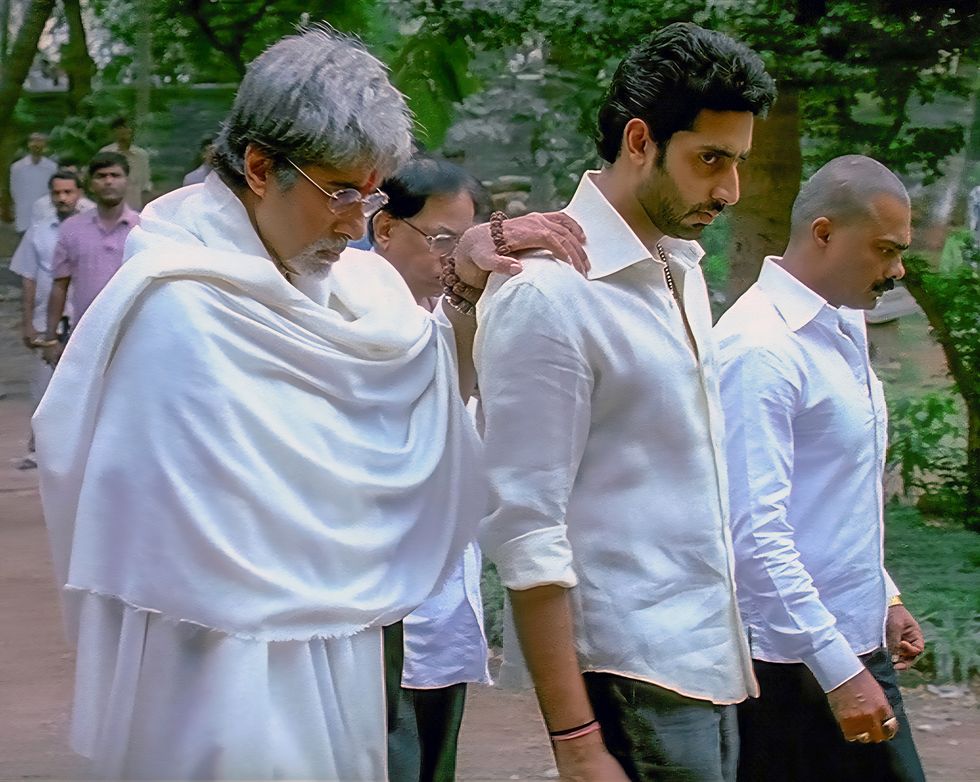 A still from Sarkar, inspired by 'The Godfather' and rooted in Indian politicsIndia Glitz
A still from Sarkar, inspired by 'The Godfather' and rooted in Indian politicsIndia Glitz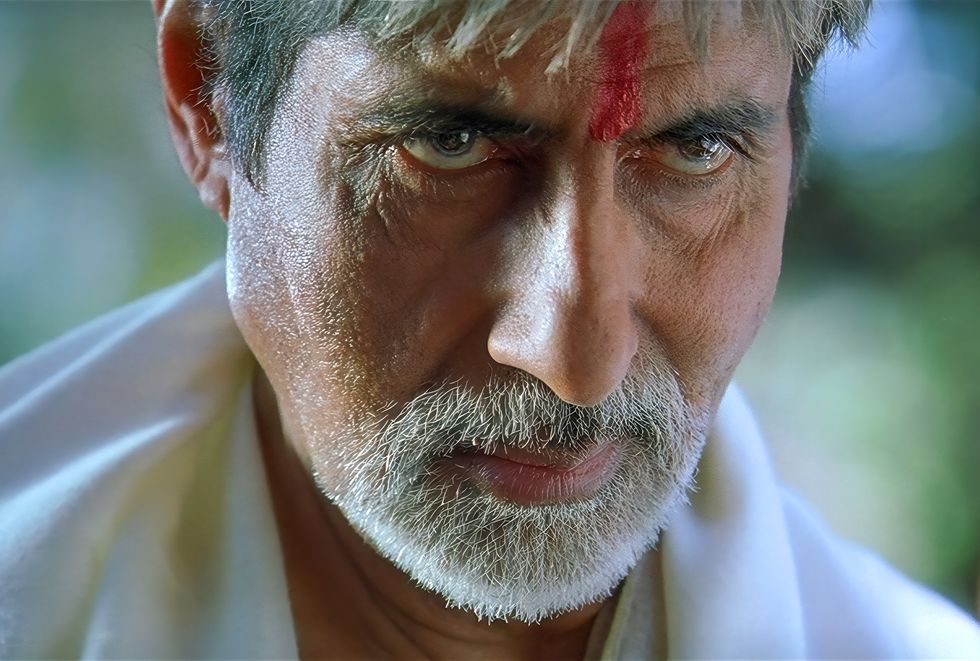 Sarkar became a landmark gangster film in Indian cinemaIndia Glitz
Sarkar became a landmark gangster film in Indian cinemaIndia Glitz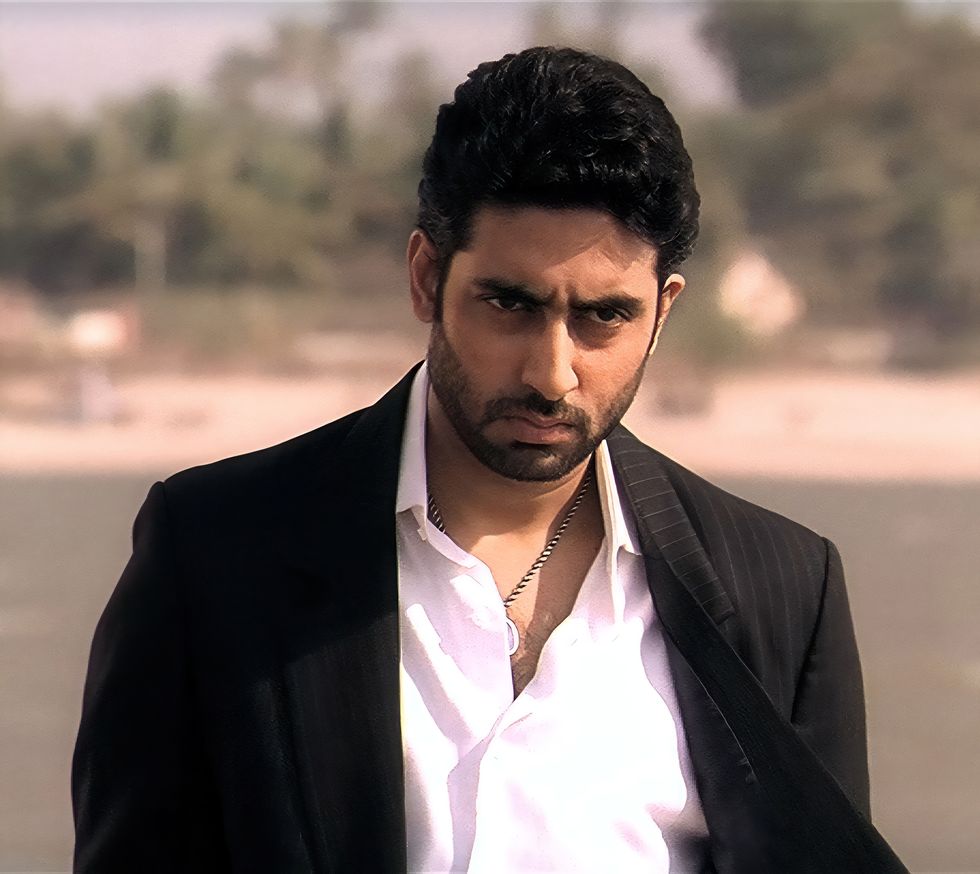 The film introduced a uniquely Indian take on the mafia genreRotten Tomatoes
The film introduced a uniquely Indian take on the mafia genreRotten Tomatoes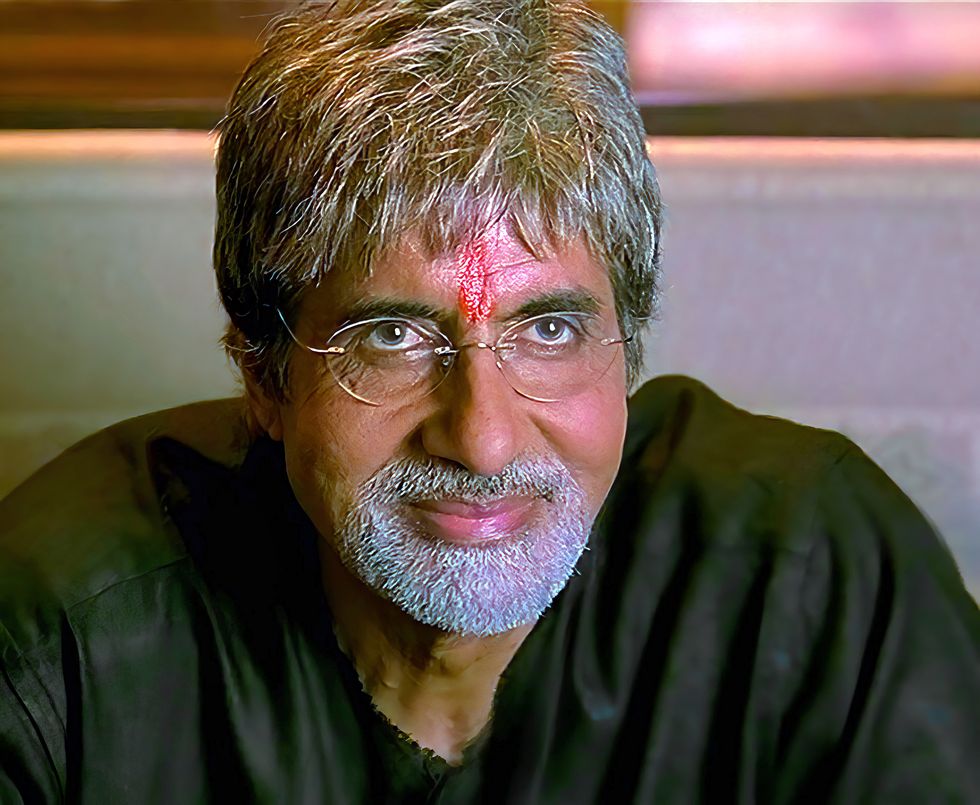 Set in Mumbai, Sarkar portrayed the dark world of parallel justiceRotten Tomatoes
Set in Mumbai, Sarkar portrayed the dark world of parallel justiceRotten Tomatoes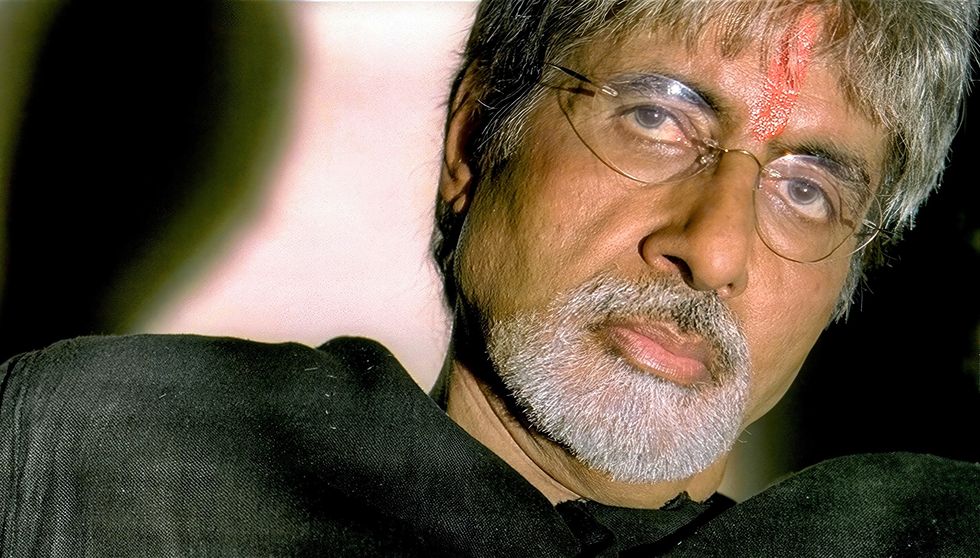 Ram Gopal Varma’s Sarkar marked 20 years of influence and acclaimIMDb
Ram Gopal Varma’s Sarkar marked 20 years of influence and acclaimIMDb
Police may probe anti-Israel comments at Glastonbury